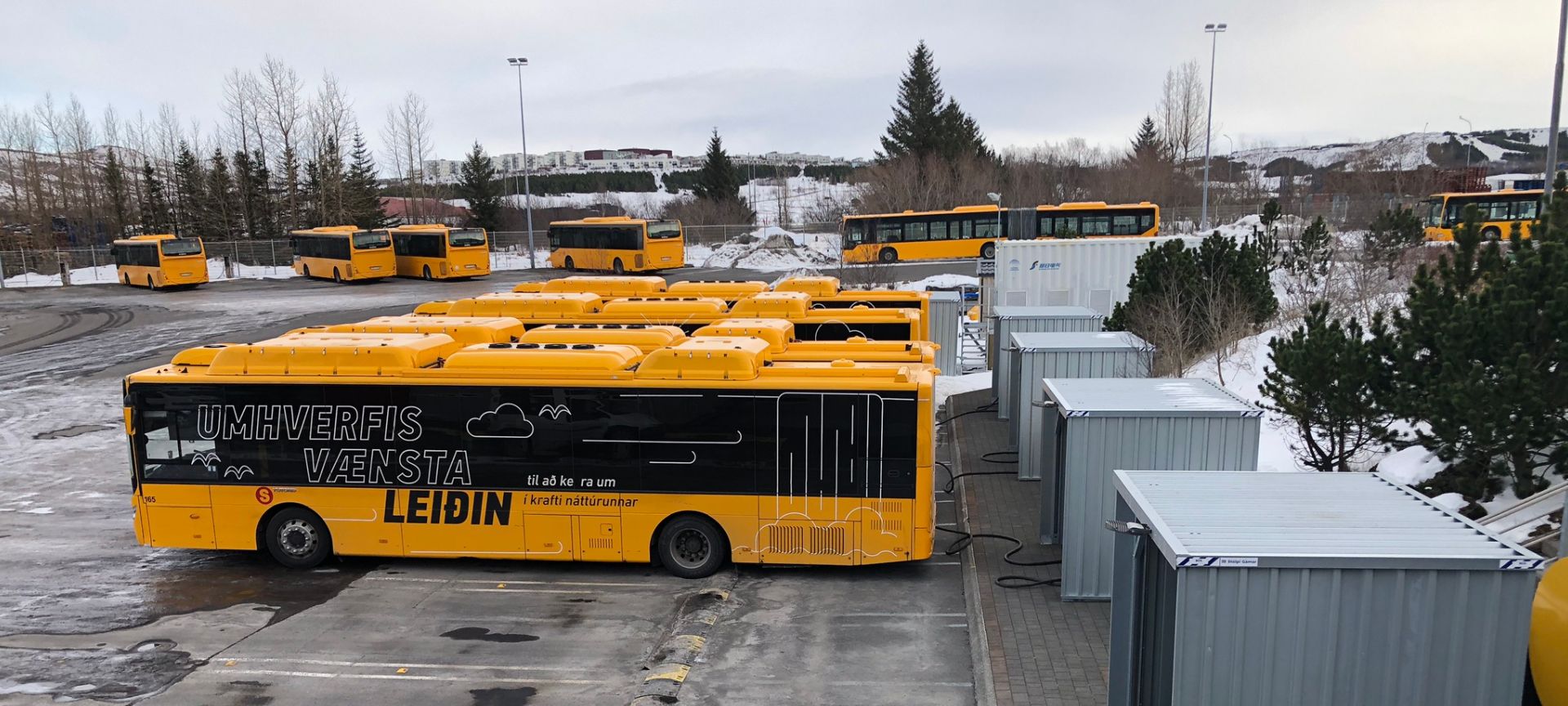Seeking sustainable fuel options for Reykjavík’s new bus rapid transit system
Royal HaskoningDHV performs a fuel selection study to determine sustainable fuel options for the Borgarlína BRT system.

Borgarlína is the name of the new Bus Rapid Transit (BRT) system under development in Reykjavík, Iceland by Landsvirkjun, the National Power Company of Iceland and one of the ten largest producers of renewable energy in Europe. Borgarlína’s ‘third-generation BRT’ services will provide direct connectivity to most key destinations in the Capital Area. The Borgarlína vehicles will have the look and feel of light rail on the main busway route, with mixed traffic continuing to key destinations. Borgarlína will include fully dedicated lanes – designed in a way to minimize delay to passengers – and will include off-board fare collection and platform-level boarding, so that passengers can board quickly and easily.
As mobility undergoes a seismic shift, cities across the globe must remain accessible. This project aims to help build a mobility network that is able to cope with the demands of an exponential growth in urbanisation and goods consumption – what is defined as the mobility transition.
Wilco Bos, Senior Consultant for Public Transport at Royal HaskoningDHV commented: “As the importance of public transport options increases across the globe in the face of the mobility transition, this is a great example of how one country is going the extra mile to embrace the use of sustainable fuel options. This is a long-term project where Iceland is planning for the future, not only to improve the passenger experience but also to ensure that its public transport network is sustainable and future ready.”
The 'third-generation' Borgarlína BRT system
The goal is for Borgarlína to become a gold-standard BRT system and serve as the backbone for the future development of the capital area. Borgarlína will be accessible to everyone. Its buses will run on clean, domestic fuel (electricity, methane or hydrogen) and bicycling will be integrated into Borgarlína’s stations and corridors, providing a clean, green option for last mile connectivity.As mobility undergoes a seismic shift, cities across the globe must remain accessible. This project aims to help build a mobility network that is able to cope with the demands of an exponential growth in urbanisation and goods consumption – what is defined as the mobility transition.
Shaping the mobility system of the future
The Borgarlína network will be implemented in three phases, across 2024, 2029 and 2034 with the long-term aim of reducing congestion, improving traffic connections and enhancing air quality. In each phase more lines will be added to the network.Wilco Bos, Senior Consultant for Public Transport at Royal HaskoningDHV commented: “As the importance of public transport options increases across the globe in the face of the mobility transition, this is a great example of how one country is going the extra mile to embrace the use of sustainable fuel options. This is a long-term project where Iceland is planning for the future, not only to improve the passenger experience but also to ensure that its public transport network is sustainable and future ready.”
Fuel selection study
Together with a local consultancy firm VSO Consulting, we investigated the characteristics of the network, the local policies and variables. This work concluded in a fuel selection study which contained the Total Cost of Ownership (TCO) and local impact of each fuel option, including factors such as emissions and noise levels. To calculate the total costs over time, a Dutch TCO model, designed by CROW, was used, which is calibrated to Icelandic characteristics.Royal HaskoningDHV was selected to perform the fuel selection study because of the hands-on experience they showed on the operation of public transport on all available sustainable fuels.
The results
The mobility transition is a journey that a city cannot undertake alone, and exploring new fuel options such as this is one way in which cities can meet the demands for greater accessibility while limiting the impact on liveability to ultimately shape the mobility system of tomorrow.
The results of the study will be used to support the decision-making process for the fuel selection in the Borgarlína project and will cover the three phases in 2024, 2029 and 2034.
Want to know more or got a question?
Contact our Sustainable Mobility experts!